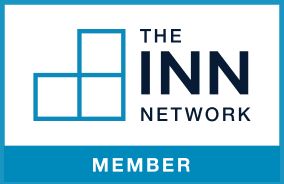Grief 101 – Do's And Don'ts When Someone Is Grieving
Cape Cod News editorial staff
21 February, 2025 – CAPE COD, MA – Grief is an innately human experience, touching each and every one of us. Yet, it is often an isolating one. Through a series of educational presentations across the Cape and islands, the nonprofit Sharing Kindness is hoping to make us better companions for those around us who are grieving. Attending one of the organization's peer support groups is Autumn Cardello who lost her son in 2023. She wishes for everyone to learn about grief to dissolve fear and stigma, so that we all can find support when it is our turn to grieve.
“... I've realized in my life, losing a lot of people ... the only way through a scary and hard situation, is to learn about it
and come together as humans and your community ... even if you don't know the person and you heard or saw that they lost a loved one ... even a smile ...”
Autumn Cardello
George's Mother
What is grief?
When Kathleen Shine-O'Brien, Licensed Mental Health Counselor and Director of Clinical and Community Services at Sharing Kindness, a nonprofit for suicide prevention and grief support, is asked what grief is, this is how she describes it: "It morphs and it changes. It's like clay. It's like if you had a wheel and you were a potter, and there are various things that you can do to this piece of clay. And some days it can look beautiful and some days it can look awful, and it might actually collapse, but it'll never be that same ball of clay that it was the very first day that you threw it on your wheel. That's kind of what grief is."
Can You Learn To Grieve?
Grief touches everyone. It's an innately human experience we all have in common,
and yet it's often an isolating one. In a series of presentations across the Cape and Islands, Shine-O'Brien is hoping to increase our grief literacy. If stigma and fear can be lifted, we can become better companions for grieving persons – regardless if the grief is caused by someone's death, an accident, losing a job or a house, divorce, or something else.
"Part of what these presentations do is sort of diminish that fear of the unknown and put things out on a level playing field, that anybody can companion the bereaved," Shine-O'Brien says.
"This doesn't need any particular expertise. Every human has the capacity to be a companion to the bereaved."
And, Kathleen says, though grief is complex, companioning a griever is simple. "It lacks judgment, it lacks the shoulds, and it's really just a heart connection. And sometimes the more quiet we are and the more gentle we are, the more successful we are in companioning that person."
How Can I Support Someone Who Is Grieving?
Autumn Cardello, mother of three, has experienced profound loss. Early in her life she lost her dad, then her brother and her grandparents. It made her interested in understanding her own feelings of grief, and when she was 21 she studied mortuary science and went into the funeral industry. In July 2023 her son George suddenly died, 25 years old.
"The one thing we have in common as human beings is love and loss," Autumn says. "And you don't have to have the right words sometimes. All we want is just someone to sit with us. That's it."
When asked about her son, Autumn smiles through her tears. "Georgie was an amazing boy.
And he was funny and he was charming, and he had an amazing balance. He could ice skate at two years old. He played hockey in New Hampshire for a very long time. He went to the penalty box a lot 'cause he just wanted that puck."
What Do I Say When Someone Has Died?
In all of her years in the funeral industry Autumn had never heard of the so-called secondary losses, a kind of domino effect following the primary grief. It can be loss of income, loss of a home, or loss of relationships.
"The second losses have come with, you know, people often are too nervous to sit with me and my grief, even if it's for 10 minutes," Autumn says. "Tears are uncomfortable for people. Grief is uncomfortable for people. And what I've realized in my life, losing a lot of people, is the only way through a scary and hard situation, is to learn about it and come together as humans in your community.
Kathleen Shine O'Brien believes people innately mean well, but do not know what to say to support bereaved persons. "I like to think of it as 'what to say when you don't know what to say'", she says.
Platitudes are a no-no. "'They're in a better place'. 'God needed an angel'. And in another situation: 'Why are you sad? You guys were divorced for 10 years. You have no right to grieve'. So we don't wanna say any of those platitudes," she says.
"What we might wanna say is: 'I can't know how you feel, but I want you to know that I can be here for you and I can be here with you. I know that you probably don't know what you need, so I'm just gonna throw out some things and just ask if that would be helpful.'"
Autumn emphasizes to not be afraid to mention the person who has died. "We want to talk about the person we lost I wanna talk about my son. I wanna hear his name," she says. "A couple of his friends, they'll find a video on their phone They'll come across it and send it to me and it takes my breath away at first and it makes me cry, but I'm so grateful."
She says even being there from a distance means a lot to a grieving person. "Even if it's just a sticky note on their car: 'Hey, I did a drive by to tell you I love you.'
What Is Grief Literacy?
Kathleen Shine-O'Brien says as a society our grief literacy is that of a third grade level. "If I were reading on a third grade level, there's a lot of books that are going to be beyond me, beyond my reading comprehension, beyond my ability to even know what the familiarity of these words are, that it's really just very basic," she says. "And I think that's how we've been as a society for a really long time. And so to increase grief literacy would bring people from that third grade level up to a high school graduate level, where you're able to understand the depth and the complexity.
Autumn is a curious person at heart with a science driven mind, eager to learn and gather knowledge. She has recently started attending Sharing Kindness’ peer support groups – a place where it is safe to let her grief be as "messy" as she wants.
"My first instinct when I got outta the car was I need to learn from these other moms how they do this. Like, how do they get up in the morning and do this? I was looking to the elder grievers, so to speak," she says. "One mom said, 'I'm five years in grieving', and I just kind of stared at her like, I need to get some sort of clue. So I was watching this woman, and I'm thinking, this is it. This is what she does. She sits here with all of us. That's her thing. That's what's helping her. And it clicked to me, I just need to come back. That's what I need to do."
"You can learn a lot from a griever. They're great friends because they won't take anything else for granted anymore. Great and loyal people to have in your life. They know what means something and they'll never take you for granted."

